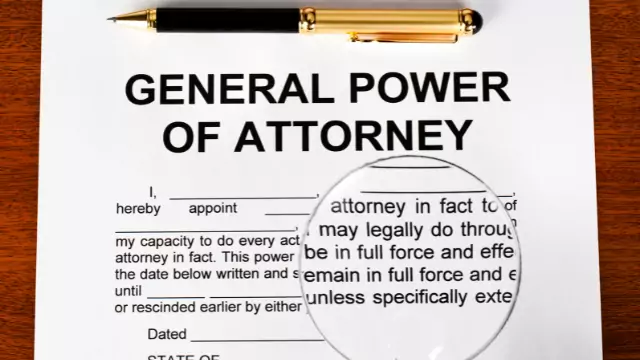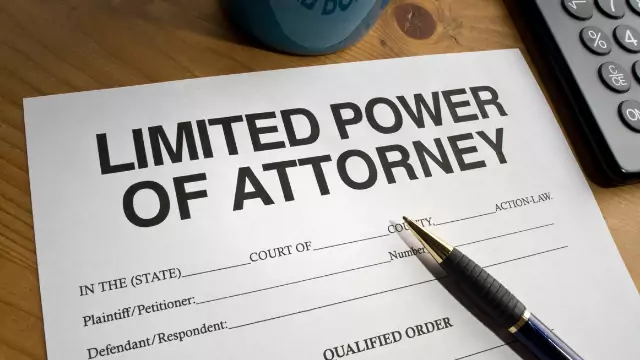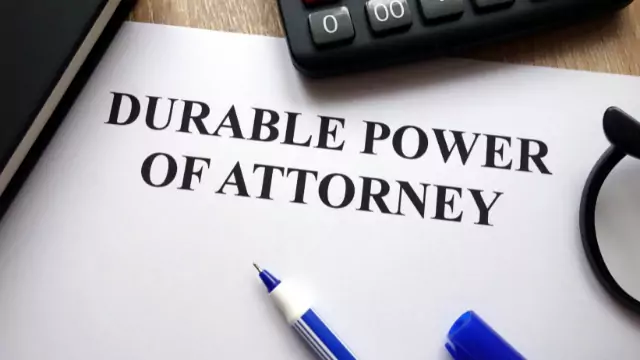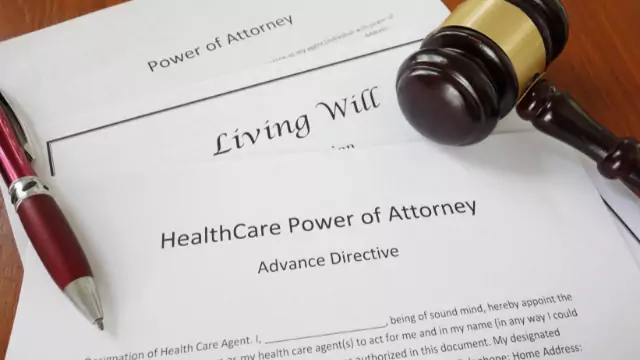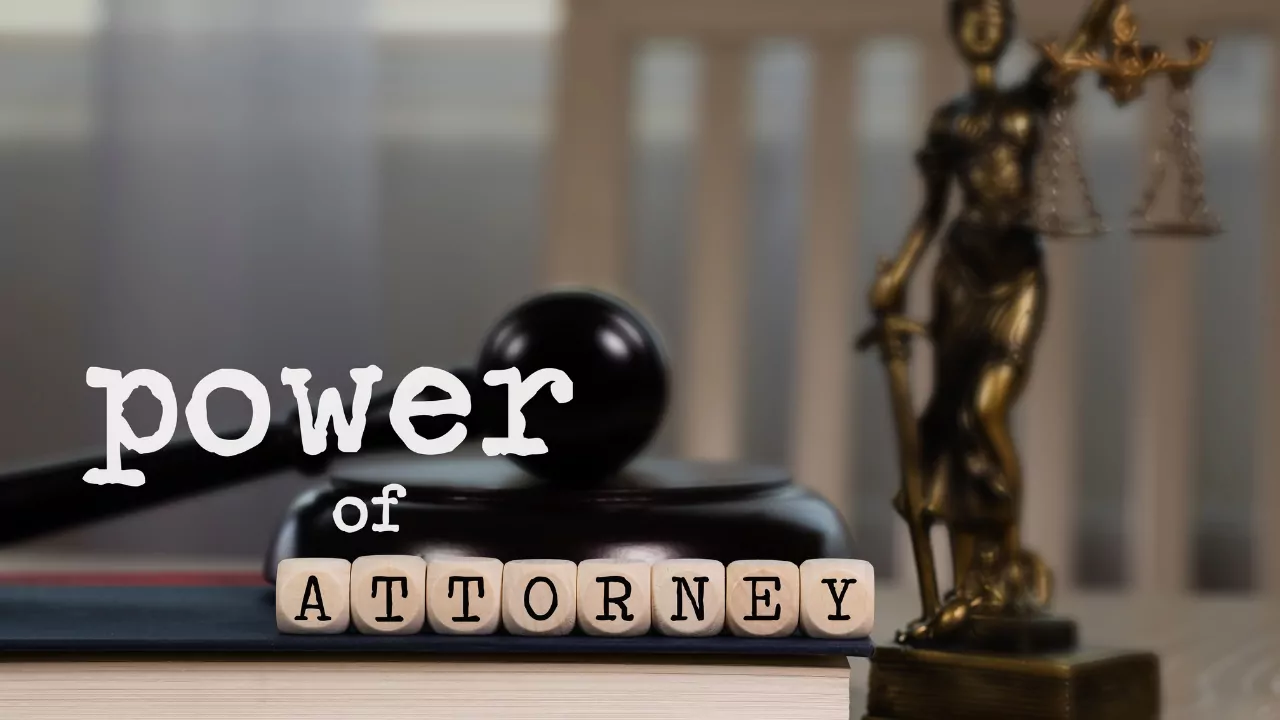
Power of Attorney Format | Overview and Types of POA
A General Power of Attorney format, or POA, is a document that allows someone to make decisions on behalf of another. It is an essential legal document when it comes to managing personal finances.
It enables people who cannot handle their financial affairs. Due to their disability or illness or need assistance with administrative and financial tasks. Such as paying bills and taxes, managing investments and property transactions, and arranging medical care.
Parents most often use it in everyday life when they want to authorize another adult. Such as their child’s school bus driver. The responsibility for making decisions about their child’s routine care (such as what time they should go home). It wouldn’t be wrong to say that the general power of attorney format is a deed of convenience rather than conveyance.
It is a document by which one person appoints another as their attorney. In fact, granting that person the legal authority to act on behalf of the first person. The document acts as a boon to the highly busy persons. Whose health is not so good or who cannot make decisions due to specific reasons?
When you register your power of attorney with a public office, you give someone else the right. To act on your behalf in all areas where you usually have decision-making authority.
There are different Power of Attorney formats:
General and the limited power of Attorney formats, Durable, and Healthcare Power of Attorney formats.
Read More: 8 Ways to Improve Your Decision Making Abilities
Introduction: What is the Power of Attorney Format?
This is a document that grants a person the authority to make decisions on behalf of another. In most cases, this is a document that two people must sign to have any legal validity. It is a legal document authorizing another person to act on your behalf.
A power of attorney is an agreement that gives someone else the right to make decisions for you. You can provide this right to somebody such as a relative, friend, or professional you trust. And who agrees to take responsibility for some or all of your financial and legal affairs.
This arrangement will only work if the person has the mental capacity and physical ability to do it successfully.
Its Types
As we already discussed above that a power of attorney is a document that grants an agent the authority to act on behalf of the principal in certain circumstances.
Also, it generally does not give the agent broad authority over the principal’s life. Instead, it deals with specific types of transactions, for example, access to the principal’s finances or authorization to make medical decisions.
There are different power of attorney formats that decide the scope of an agent to do the activity.
- General Power of Attorney
- Limited Power of Attorney
- Durable Power of Attorney
- Healthcare Power of Attorney
We will discuss in detail these formats in the next part of this article.
1. General Power of Attorney
The general power of attorney format allows the person with a power of attorney (the agent) broad power over all aspects of your life, including those involving finances, property, business dealings, and personal care.
It refers to simple agreements that grant an agent broad powers so they can handle various types of actions on behalf of their principal (the individual who granted them this authority).
This document allows you to make decisions for your loved one on any matter, including health care and financial affairs. In the law of agency, a power of attorney is a document that designates an agent to act on behalf of another, the principal.
Someone confers powers for some particular purpose or some particular duration. Someone can grant it for an indefinite term or a specific period and limit it to its scope and authority.
A general power of attorney allows the person giving it (the “principal”) to appoint someone else (the “agent”) to act on their behalf in any lawful matter:
- To manage property;
- Contract for services;
- To borrow money;
- Enter into agreements with third parties; and
- Do all other acts that the principal might do if present.
2. Limited Power of Attorney
It is a power of attorney that allows the agent to act for the principal in only specified matters. Limited power of attorney is also termed as special power of attorney. There are two types: limited general and limited special.
- Limited general power of attorney: This type allows the agent to act for the principal in any matters not specified as being limited by another kind of power of attorney.
- Limited special power of attorney: This specifies that the agent may only act for the principal in specifically designated matters.
A power of attorney, otherwise known as an attorney-in-fact, is a legal document that enables another person to act on behalf of somebody else.
This type of power is typically granted if the person granting it becomes incapacitated or is away from home for an extended period due to work or other commitments.
The power will only be valid if it has specified limits and cannot be applied generally to all types of transactions.
3. Durable Power of Attorney
Finally, the durable powers of attorneys are those that will still be valid even after the principal becomes incompetent or dies.
A Durable Power of Attorney (POA) is a legal document that allows you to appoint someone else to make decisions about your financial and medical affairs if you become unable to do so yourself. It does not take effect until and unless the person who is appointed as your agent meets certain requirements:
- They must be at least 18 years old, competent and willing to serve as your agent;
- Not prohibited from acting as an Agent under any other law; and
- Not prohibited from serving as an Agent for you under any agreement between the two of you.
- If the person meets all these requirements, they can be authorized by a Durable Power of Attorney to take care of your estate in case something happens.
- It lasts until the person who gave a power of attorney can no longer make decisions about their affairs or has died.
4. Healthcare Power of Attorney
A healthcare power of attorney allows someone you trust to make decisions about your health care when you cannot decide for yourself, such as in cases where you are incapacitated or incompetent.
With this form, you must designate someone who will uphold your values and wishes regarding your healthcare. For instance, if you want all life-saving measures used in an emergency, then it would.
This document is not just for healthcare professionals; it also helps ensure that your pets and animals will be cared for and an advance directive.
Read more: What Is Information Technology? Overview and Examples
How to Get Power of Attorney
Every person above the age of 18 years and sound mind can grant a general power of attorney, but it should be kept in mind that no one can get power of attorney without the consent of the person who is giving it to them.
Since the document of power of attorney gives the agent broad authority to make contracts, buy and sell property, borrow money, and do anything else within the scope of its authority, all these things should be signed by both the parties and notarized by the notary.
According to Indian law, it is not compulsory to register a power of attorney, but it is always advisable to avoid legal hassles. But anyhow, the document of power of attorney is not covered under Section 17 of the Registration Act, 1908, which provides for the documents to be compulsorily registered.
Keep in mind that if a power of attorney relates to the transaction of immovable property, then that document should be compulsorily registered. A power of attorney ends when either party dies or becomes incapacitated (unable to be responsible for their affairs).
Where can I get it?
If you are looking to get a power of attorney format, you may find many templates online. You can accordingly get that template customized through your needs and requirements.
Besides these, you can get advised by a lawyer to help you draft a power of attorney carefully with due diligence. All the duties entrusted to the agent should be carefully scrutinized before authorizing him.
Whosoever is granted a general power of attorney should be a loyal and faithful person. He will be playing an essential part in representing you, and all his acts on your behalf will be counted as yours.
Summary
We have concluded that power of attorney is a document that grants one person the authority to appoint some other person on their behalf to act.
Four types of power of attorney exist. These are general power of attorney, limited power of attorney, healthcare power of attorney, and durable power of attorney.
The most common and simplest form of power of attorney is the General Power of Attorney Format. This power can be used for any purpose, subject to limitations in the document’s language.
A general power of attorney can act on behalf of the other person in all situations. The power also terminates when the principal becomes incompetent or dies.
The limited power of attorney, also known as special power of attorney, is limited in scope and it applies only in specific circumstances. The document includes limited duration, limited authority, or limited subject matter.
Suppose you are unable to conduct necessary business transactions because of a disability or illness. In that case, a limited power of attorney will allow you to appoint another individual who can complete those transactions for you.
It is compulsory to register; however, it is important notary to sign and notarized.
A durable financial power of attorney grants a person the ability to make financial decisions for another person while that person still has decision-making capacity.
The Healthcare power of attorney format is when the principal appoints an agent to deal with specific matters related to healthcare only. That document is termed the healthcare power of attorney.
It is really easy to get a general power of attorney format. You can either find it online, or you can let a lawyer or other competent person draft it.
So, this was all about the general power of attorney format. I hope that you all got insights from the article. And it will prove to be beneficial for you all in the future.


